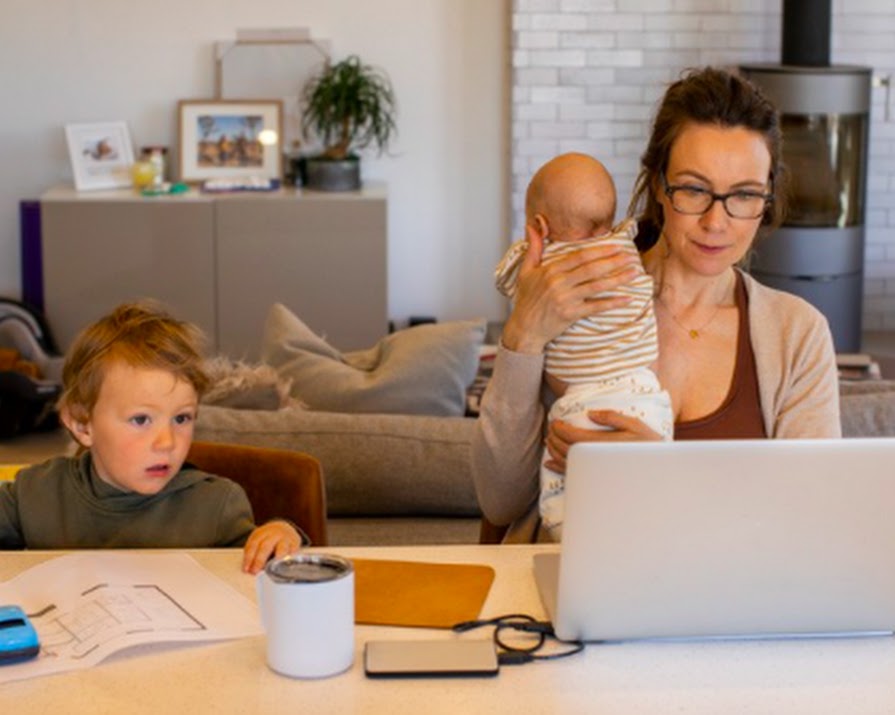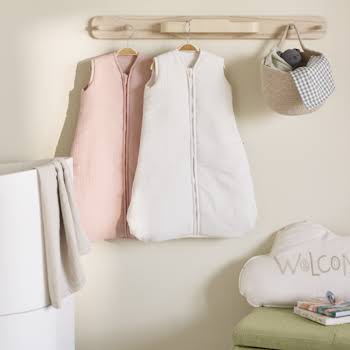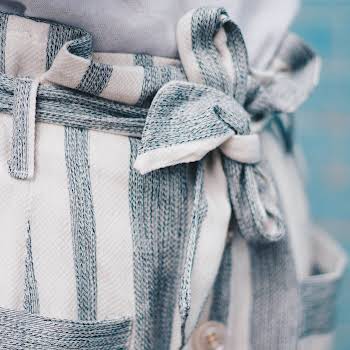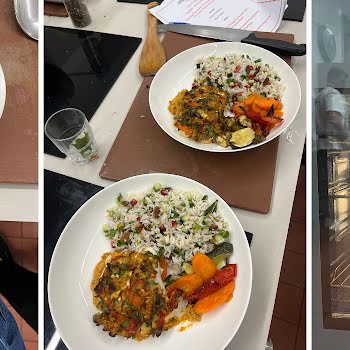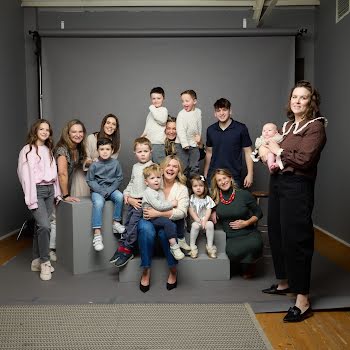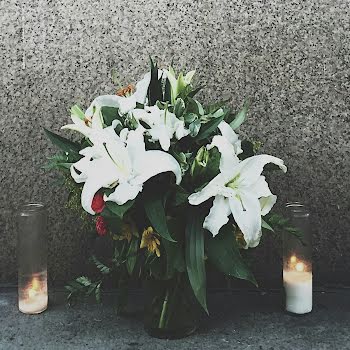
By Amanda Cassidy
21st Jul 2020
21st Jul 2020
New research has found that women are being pushed back into traditional gender roles as a result of the coronavirus pandemic, writes Amanda Cassidy (as she balances baby on her lap)
They say a woman’s work is never done, and the truth to that has never been more pronounced than during the current lockdown.
As well as juggling remote working, Zoom meetings and homeschooling, there are meals to be cooked, laundry to stay on top of, anxious minds to soothe — all without any childcare. The burden of which seems to be falling squarely on the tired shoulders of women everywhere.
Careers, for women, are beginning to strain.
New research carried out by the Institute for Fiscal Studies and UCL has confirmed this unbalance.
After interviewing almost 4,000 families, they found that in homes where there are working parents, mums were only able to do one hour of uninterrupted work, for every three hours done by dads.
Women are still the default carers for children and elderly parents.
It is worth remembering that even those with supportive partners are still competing with many men who do way less at home.
An interesting study among scientists found that men were four times as likely as women to have spouses who work only part-time or not at all.
And all this was before more women than men lost their job because of the pandemic.
Unbalance
“Mothers are doing, on average, more childcare and more housework than fathers who have the same work arrangements,” said Lucy Kraftman, a research economist at the IFS.
This is a big swing from before lockdown restrictions came in where mothers completed on average around 60% of the uninterrupted work hours that fathers did.
Steps made forward over the last decades are in danger of being rolled back permanently
And while the measures are temporary as we all figure out which way is up, there are fears that the consequences of the crisis threaten to push women back into the traditional roles in the home which they may struggle to shake off once restrictions ease.
The coronavirus pandemic has pared things back. It makes the gaps a lot clearer to see. And it isn’t just here. Right across Europe, women’s rights campaigners have been warning that the steps made forward over the last decades are in danger of being rolled back permanently.
One survey in Spain found that 80% of 12,600 women interviewed were struggling to balance working from home with childcare.
Similarly, a study carried out by the University of Valencia found that among working families, mothers were the ones left homeschooling, adding to their anxiety levels.
“My husband has brought the kids in on a Zoom call — his team adores it. I wouldn’t dream of doing the same — career suicide.”
Career Detriment
In Germany, the country’s think tank DIW found that a quarter of women with children under 14 years of age spend less time on paid work since lockdown started. That’s compared with 16% of men. The risk here is that long-term career goals could be damaged for women left holding the baby.
Women’s productivity in employment has suffered more than men’s
Worryingly, an Oireachtas report here in Ireland also pointed out that not only has the crisis meant that “women’s productivity in employment has suffered more than men’s” but there are implications that the fallout from it could continue on for years.
It stated that women could expect “potentially fewer economic opportunities and a wider gender remuneration gap”.
*Laura is part of a dual-income, career-minded couple in finance with children aged 4 and 11. She says that during the pandemic, her focus is on the job, getting it done, rather than building relationships. “It is just survival. My husband is very senior in his career and without childcare, the burden falls to me to keep the show on the road.
“He is helping for sure, but I have to keep the to-do list going and the home-schooling.”
Laura is a director in finance for a large financial services company in Ireland. “I worked until midnight three nights last week as I had year-end deliverables due. My boss’s response is that ‘we are all working until midnight’.
The very senior (both women and men) have support from stay-at-home partners. My husband has brought the kids in on a Zoom call — his team adores it. I wouldn’t dream of doing the same —career suicide.”
This has been the hardest time as a working mother in the 10 years since I’ve been a mum
Always on
Of course, juggling childcare and job responsibilities is unmanageable. Both are full-time jobs. Few can double-job effectively, especially when it comes to meeting the needs of little human beings. Clocking off is impossible.
“It breaks my heart to tell my daughter to go find something to do or to watch TV because mummy has a meeting,” *Claire, another working parent, tells us.
The mum-of-two works for a large insurance company here in Ireland. “But what else can I do? The government has a road-map for restaurants and hairdressers but we still don’t know what is happening for the children. It isn’t fair on them either. It isn’t sustainable.”
Something has to give.
This scenario has backed many working mothers into a familiar corner — a corner still under-acknowledged by many, working fathers included.
14% of women surveyed by Syndio in the US admitted they are considering quitting their jobs because of the family demands caused by the pandemic. Something has to give.
Laura says that as a working mum trying to achieve in your career is challenging. With children at home, it is even harder. “The work has to get done and to the same standard — period. This has been the hardest time as a working mother in the 10 years since I’ve been a mum.”
Gaps
The fragility of this delicate balance with which working mothers are familiar was only really getting established — even with the nightmare of childcare options in this country. But the fear now is that the pandemic juggle has pushed many too far.
The time has come for policymakers to make final decisions on issues that affect whether women are able to go back to work: child care and reopening schools.
The upside is that although mums are doing more, men, although disproportionally, are also doing more. One study found that fathers are doing nearly double the hours of childcare they were doing prior to the crisis.
It is all a steep learning curve — for everyone. But this pandemic can also be the chance to re-establish a new dance, a one where the woman isn’t the only one spinning — dizzy, never knowing what the next step might be.
Image via Unsplash.com
*Real names have been changed to protect identity.
Read more: ‘My home isn’t a safe space. I’m struggling’
Read more: Coronavirus: ‘It is time to acknowledge that our children are not ok’











